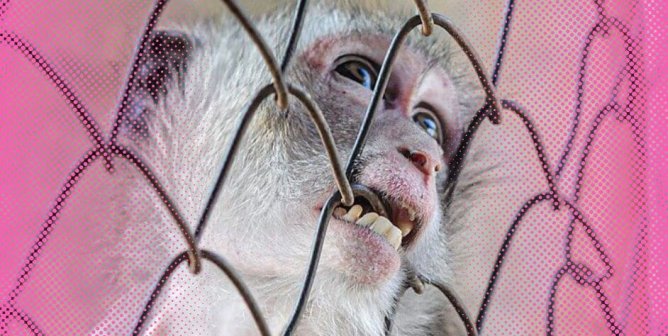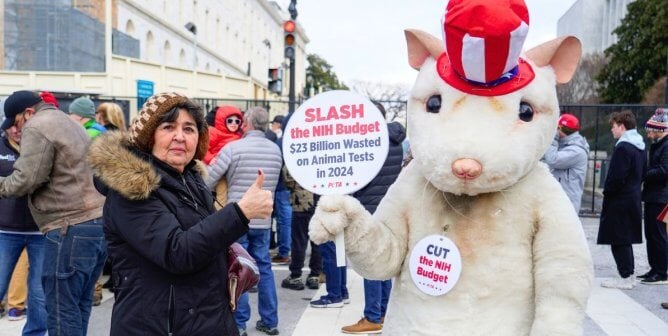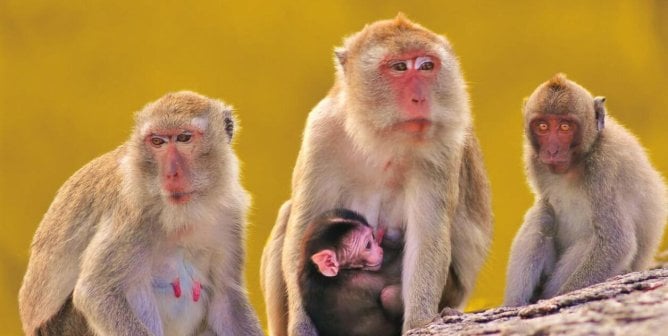Primate Products, Inc.
The process of getting monkeys into laboratories is traumatic. The animals are either lured from their forest homes into traps and torn away from their families or bred on decrepit factory farms. They’re crammed into tiny shipping crates and loaded into the dark cargo holds of planes or trucks and sent on days-long journeys. Some don’t survive the trip.
Monkey dealers like Primate Products, Inc. (PPI), import animals to sell to laboratories and treat them as the company’s name suggests: like products. In 2014 and 2015, PETA’s eight-month eyewitness investigation documented systemic neglect and violent handling of monkeys at PPI. Sick and injured primates were sometimes denied adequate veterinary care and forced to live in filthy, barren, and dangerous conditions. Some paced in circles and rocked from side to side out of frustration and stress. Workers sometimes failed to separate animals who had been attacked by aggressive cagemates, leaving them with exposed bones, bite wounds, and hair loss.
Workers routinely grabbed monkeys by the tails, which not only is stressful but also can cause severe and irreversible nerve pain. Although temperatures at PPI’s facility dipped to 35 degrees, most monkeys kept outside were denied heat throughout the winter. One was found dead of suspected hypothermia in an outdoor enclosure. Pens’ floors were sometimes covered with days’ worth of old food and accumulated waste, and PPI’s failing water pump sometimes left thirsty monkeys shaking empty dispensers in search of water.
After PETA shared its documentation with the U.S. Department of Agriculture (USDA), a team of six agency inspectors conducted a three-day inspection of PPI and cited the facility for at least 25 violations of federal animal-welfare laws in two reports, available here and here.
PPI remains under federal investigation.




